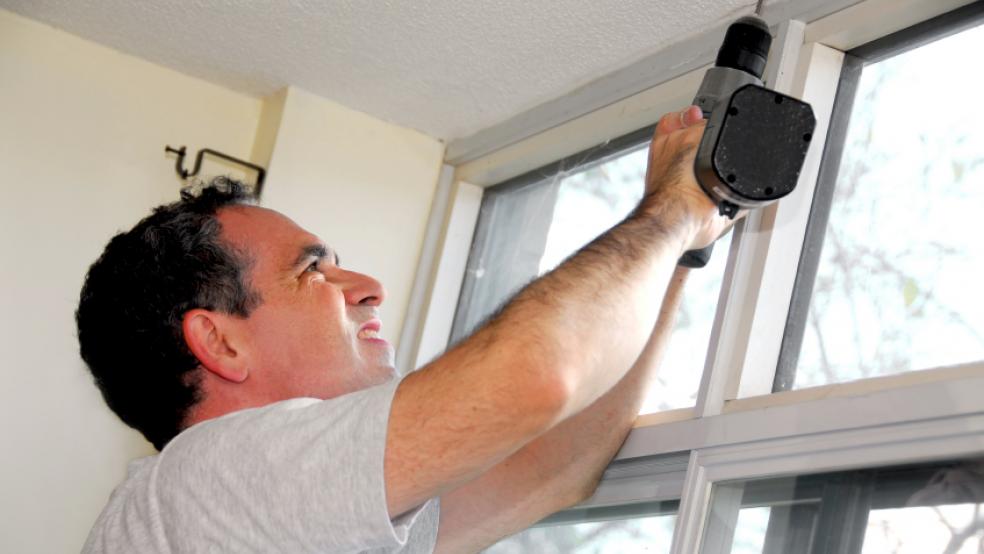Home is where the heart is, but even the most beloved abode needs some sprucing up now and then.
As property values rise, Americans are once again feeling comfortable investing in a home upgrade. More than half of homeowners said they planned to make an improvement or addition this fall, according to a survey released this month by Zillow.
Those projects are making more financial sense than they have in recent years. While most renovations don’t pay off dollar-for-dollar when you sell your home, the return on investment for remodeling projects are showing an increase in 2013 for the first time since 2005, according to Remodeling Magazine.
Still, home renovations are a costly undertaking, and it’s easy for a homeowner with little experience to overpay or end up with a finished product that’s not quite what he bargained for. Last year the Better Business Bureau received nearly 8,500 complaints.
Even if you don’t get ripped off, finding the right contractor is key to making the stressful process of a home renovation go more smoothly. Follow these tips to find the best pro for the job.
1. Set a budget ahead of time
You’ll need to give contractors a reasonable estimate of how much you’re willing to spend in order to get a solid understanding of the type of work they’ll be able to do within your budget. Use the tool at remodeling site Houzz.com to get a sense of what various projects typically run in your area.
RELATED: 5 WAYS TO GET CURB APPEAL RIGHT
Tell potential contractors your budget is about 10 percent less than what you can actually afford, so that you have reserves for the unexpected expenses that always creep up.
Note: If your remodeling project improves your home’s energy efficiency, you may be eligible for a federal tax credit to offset the cost. On the other hand, if the project significantly improves the value of your home, your property tax bill may be adjusted accordingly.
2. Gather at least three names
If you know local friends or family members who have recently had work done on their homes, referrals are a great way to start your short list. If you’re new to the area, it may be worth signing up for a review site like AngiesList.com ($10/year), which features consumer reviews of contractors. Look for a local business person who has been in business for a few years and who specializes in the type of project you’re looking to have done.
Once you have a few names, do some quick online vetting. You’ll want to check the Better Business Bureau to see if the contractor has had a lot of complaints and your state’s licensing board to make sure her certifications are up-to-date.
3. Make the interview count
Bring in three to five contenders for a sit-down interview. You’ll want to discuss the basics of the project of course, but also talk about your expectations for how the work will be done. Specify which hours you expect to have workers in your house, and how they should clean up every day. “Being up front and laying the ground rules ahead of time will make the project go much more smoothly,” says Angie’s List founder Angie Hicks.
Use the interview to get a sense of how the contractor communicates and to make sure he knows how the permit process works for your project. Most contractors will bring a portfolio with photos of recent projects, so you can get a sense of their style. Ask for a list of references, including previous clients as well as current suppliers, who can talk about how a contractor runs his business. If possible, visit a current work site to get a sense of whether it’s well-run and safe, and to see how the workers interact with each other.
Finally, ask for an insurance certificate that shows up-to-date liability and workers’ compensation insurance.
RELATED: THE HOTTEST SPOTS IN THE HOUSING RECOVERY
4. Compare bids carefully
Request that all bids be itemized, so you can see how the costs within the project breakdown. Don’t automatically go with the contractor that offers the lowest prices -- an extremely low offer may be using cheaper material or may take longer to complete the project. If two bids look similar in terms of scope and materials but very widely in price, ask the contractors about the discrepancy.
5. Get everything in writing
The contract should spell out the project’s timeline and the schedule for each payment, including the final payment, which should be tied to the completion of the project. The contract should also include information on who is responsible for getting any necessary permits, expectations around clean up, and how change orders will be handled. Read through the initial contract thoroughly, and remember that you’
6. Go wtih your gut
Costs and references are important, but so is your ability to trust and communicate easily with the contractor. You’re handing over a lot of money to someone to literally tear your house apart, so don’t dismiss any misgivings you might have, even if a contractor looks great on paper.
If he is late for the interview or doesn’t return your calls promptly before getting the job, chances are he’s going to behave the same way once he lands the gig. “If you wouldn’t be comfortable having the guy over for dinner, then you shouldn’t hire him to work in your house,” says Tom Kraeutler, host of The Money Pit radio show.






